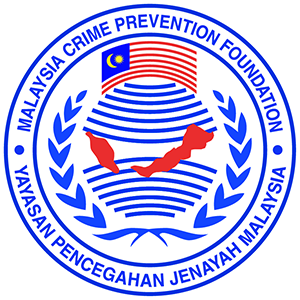
SHAH ALAM – Neglectful or overly strict parenting often breeds aggression, especially when parents model disrespect or defend misbehaving children, eroding school authority and fostering entitlement.
As Malaysia faced a disturbing rise in school violence, from bullying to sexual assault and even murder, an expert warned that the root of the problem may lie not only in schools but at homes, where discipline, empathy and accountability first took shape.
Universiti Sains Malaysia crime expert Datuk Dr P. Sundramoorthy stressed that home remained the most influential environment shaping a child’s values.
He said parenting styles played a critical role in determining whether children develop empathy and respect for others or gravitate towards aggression and defiance.
“Neglectful, inconsistent or overly authoritarian parenting often correlates with aggression and delinquency. When parents model anger or disrespect towards teachers, children imitate these behaviours.
“The situation is worsened when some parents defend their children even in clear cases of wrongdoing, undermining school authority and creating a sense of entitlement,” he told Sinar Daily.
Sundramoorthy said this dangerous trend has eroded the foundation of discipline in Malaysian schools, where educators now faced increasing challenges managing behaviour that was once corrected at home.
He said safeguarding children’s rights should never mean shielding them from responsibility.
“Striking a balance between child protection and discipline is essential. Safeguarding children’s rights should never mean shielding them from accountability. Some parents believe students today are too protected, a perception that holds some truth.
“However, reverting to fear-based or corporal punishment is not the answer. Criminological studies consistently show that such methods may yield short-term obedience but increase long-term aggression and erode trust,” he said.
Instead, Sundramoorthy advocated for restorative disciplinary approaches that combined accountability with counselling and rehabilitation, helping students understand the impact of their actions rather than simply fearing consequences.
He emphasised the need for stronger collaboration between parents, teachers and schools.
“Building stronger family-school partnerships is crucial. Regular parent-teacher-student engagement such as quarterly Parent-Teacher Association meetings, can promote understanding and shared responsibility.
“Participation should be encouraged through flexible scheduling, online sessions and supportive outreach, rather than enforced through punitive measures such as barring students from exams if their parents fail to attend,” he said.
Persistent lack of cooperation, he added, can be handled administratively. But, the primary goal should always be cooperation, not punishment.
Sundramoorthy called for a national strategy that involves multiple stakeholders.
“A lasting solution requires a multi-agency approach. The Education Ministry, Social Welfare Department, police and media regulators must work together to address both the causes and expressions of youth violence,” he said.
Sundramoorthy also proposed several key reforms:
- Mandatory social-emotional learning in schools to teach empathy, consent and conflict resolution.
- Accessible counsellors and psychologists to identify at-risk students early.
- Media literacy education to help youth critically assess violent or misogynistic online content.
- Community parenting programmes to equip families with digital supervision and non-violent discipline strategies.
- A national database to track and analyse trends in school violence.
He emphasised that law enforcement must also act swiftly and transparently when handling serious school crimes, ensuring investigations protected both victims and juvenile offenders’ rights while maintaining public confidence.
He also warned that Malaysia’s recent surge in school-related crimes reflected a deeper moral and social decline.
“An erosion of empathy, respect and self-restraint that once defined Malaysia’s educational ethos. While the country has not reached the levels of youth violence seen abroad, the warning signs are undeniable.
“Restoring these core values will require courage, consistency and compassion from every corner of society; teachers, parents, policymakers and the youth themselves.
“This is not merely about restoring order in schools, but about safeguarding the moral foundation of an entire generation before violence becomes the new norm,” he said.
Two weeks of horror in Malaysian schools
The rising tide of school violence became tragically evident in two major cases within weeks of each other.
On Oct 2, Malaysia was shaken by the alleged gang rape of a 15-year-old student at a government secondary school in Alor Gajah, Melaka. Four Form Five boys were arrested after two were accused of assaulting the girl, while the other two recorded the act on their phones.
Education Minister Fadhlina Sidek vowed that “no one will be protected,” stressing that “firm action will be taken against the offenders.”
The ministry also requested the Malaysian Communications and Multimedia Commission to block the circulation of the video.
However, public outrage erupted when the ministry later allowed the students (suspects) to sit for their Sijil Pelajaran Malaysia examination. Critics, including Parent Action Group for Education chairman Datin Noor Azimah Abdul Rahim said the gravity of the crime outweighed examination rights.
Just 12 days later on Oct 14, another tragedy struck. A 16-year-old student at a school in Petaling Jaya, was fatally stabbed by a 14-year-old schoolmate. The suspect, who had reportedly been rejected after confessing his feelings to the victim, attacked her with knives during school hours.
Selangor Menteri Besar Datuk Seri Amirudin Shari expressed his condolences and emphasised that “schools should be the safest place for our children.”
Education Director-General Dr Mohd Azam Ahmad subsequently ordered tighter school security, mandatory bag checks and enhanced mental health support for students.
This article first appeared on Sinar Daily.
Past Events
- MCPF Penang pays a Courtesy Visit to YDH CP Dato’ Ts. Azizee bin Ismail at Penang Contingent Police HQ
- MCPF Penang & MCPF Secretariat Team supports PWDC’s 12th Penang Goes Orange Program at The Esplanade, George Town
- MCPF Penang attends PDRM’s 2025 North Zone ATIPSOM Enforcement Seminar at Grand Ballroom, G Hotel, George Town
- MCPF EXCO Member / MCPF Penang Deputy Chairman Dato’ Seri K. Pulayantran attends MCPF Management Standing Committee Meeting at MCPF HQ
- MCPF Penang guided by its Chairman Dato’ Seri Ong Poh Eng holds a Tender Opening for CCTV Project (SMK Mengkuang) Proposal at PGC






